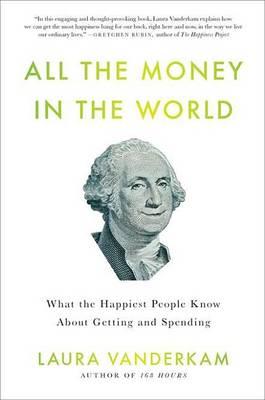 Almost two weeks ago, I was on the phone with a reporter from a national magazine, talking about solopreneurship and personal branding. We were having a lovely chat — though I felt like a bit of a spaz; that’s why I’m a writer, you guys — when he asked me about my income.
Almost two weeks ago, I was on the phone with a reporter from a national magazine, talking about solopreneurship and personal branding. We were having a lovely chat — though I felt like a bit of a spaz; that’s why I’m a writer, you guys — when he asked me about my income.
“I make about $30k a year,” I told him.
“You can live on that!?” he asked.
I mentioned that I was lucky enough to have a husband who made way more money than me, so that I could create a life in which I only worked part-time hours. I told him I was building a career in which I could stay home with my future (as-yet-unconceived) children and not take a huge, unprepared-for blow to my paycheck. And if I needed more money, I said, I could always hustle a helluva lot more instead of sitting back and letting the work come to me (which is my current, lazy-ass m.o.).
He asked me what I’d do if a media company offered me a staff position at $75k.
“I’d turn it down,” I said. “No question.”
“What about $100k?” he asked.
“Nope,” I said. “I never want to give this up.”
Two days later, my bread-winning husband lost his job.
I had just arrived home from yoga when he called me. I was feeling loose, relaxed, happy. I didn’t realize who it was at first. Then: “I have bad news. I was just laid off.”
I told him everything would be just fine. After all, he had a ton of great contacts in the industry (he’s a web developer), plus this could give him the chance to focus on his own business (which, at the moment, he just does on the side). Then I hung up and started crying and, in a panic, spent the next three hours looking at job ads.
Pretty much everything I tell my clients not to do.
At that point, reason took hold and I reached out to my network. (Also, Michael eventually came home and told me to chill the eff out.) Within a week’s time, I had a new coaching client, a new ghostwriting project, two new, prospective ghostwriting clients, and yet another ghostwriting project on the horizon. And Michael had five trillion job interviews and his first job offer. (He’s lovable and stuff.)
I’ve been reading Danielle LaPorte’s The Fire Starter Sessions these past two weeks, and I felt a click when I read her chapter on money. In it, she writes:
Do you want to make a million bucks a year? Why? For what? Do you really need it to do what you want to do and be who you want to be this lifetime, or do you need more? How much will be enough if you’ve reached your lifestyle goals? And who really needs ‘more than enough’?
This passage reminded me of an exercise I’d done when reading The Wealthy Freelancer. Early on in the book, Pete Savage had asked readers to write up a description of their ideal day, so that they could then plan a means of getting closer to it.
What was weird was that I wasn’t as far off from my ideal day as one might think.
It also made me think of Laura Vanderkam’s All the Money in the World, in which she asserts that we already have all the money we need… but can easily get more if times get tight.
You guys! They’re totally right!
What I’m saying is… my response to that reporter still stands. Keep your $75k. Keep your $100k. I have all the money I need. And if I need more, I’ll just hustle harder. It’ll all work out in the end.
I don’t want to give up this life of mine. Because of the life I have, these past two weeks have allowed me to:
- sweat over the fact that my agent has started sending my book proposal around to publishers
- meet up with one of my tweeps at a networking event hosted by a fellow YEC member
- see the Bloggess in person, and have her sign my copy of her new book (better than all the great works of literature combined)
- have a Skype date with my writing partner
- bid on my dream house
- attend a meeting of the Toastmasters Club so I could improve my public speaking skills in advance of my panel at this weekend’s ASJA conference
- get a haircut in the middle of the day
- take 10 yoga classes
- work on masterminding a yoga/writing workshop with a fellow yogi
- hire a designer for a new web project
- work on several ghostwriting projects, and draw up a project proposal for another one
- apply for a volunteer position with Girls Write Now
- write a personal essay on infertility for YourTango
- have a phone chat with a new coaching client
- etc.
You guys. My life looked nothing like this when I was working full-time for someone else. Back then, I did the same type of work all the time, instead of mixing things up. I spent about three hours a day commuting. Instead of attending literary events and happy hours, I rushed home so I could eat dinner and get to sleep at a normal hour. I never worked out (and, as a result, quickly gained about 30 pounds). I was sick all the time, and also taking several medications for depression and anxiety. It most definitely was not my ideal life.
This life? The one I’m leading now? It’s a lot closer.
There are people who will look at my salary and think I’m not successful because I’m not pulling in six figures, or who will think I’m lazy because I’m no longer working crazy hours at the expense of my health.
But damn if I don’t feel successful.
So what’s your version of an ideal day? Are you making enough to achieve it?

